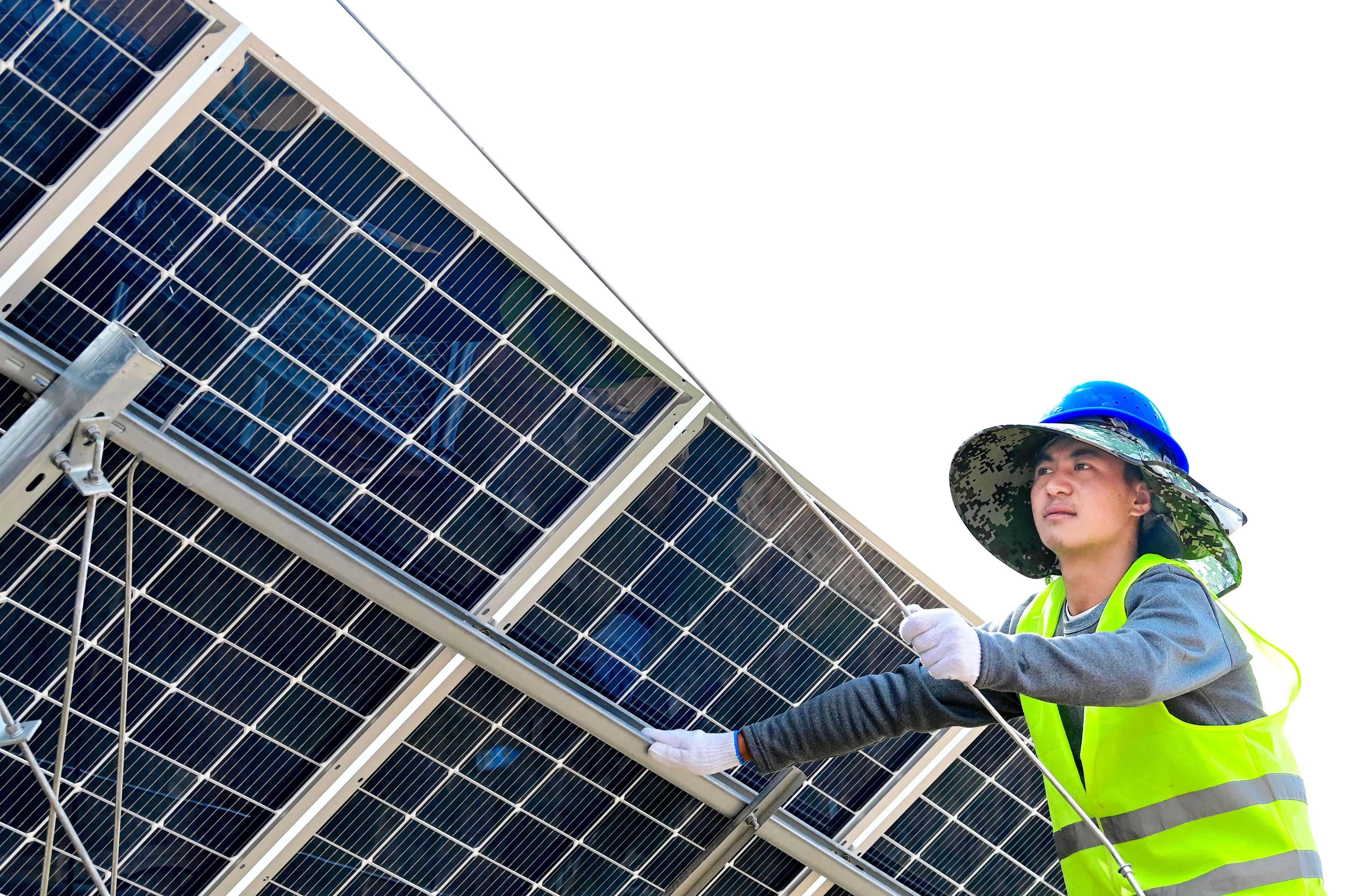Rising market demand, lower costs boost solar companies' earnings amid warnings
 A worker tends to a photovoltaic power station project in Erdos, Inner Mongolia autonomous region, on Aug 27. (WANG ZHENG / FOR CHINA DAILY)
A worker tends to a photovoltaic power station project in Erdos, Inner Mongolia autonomous region, on Aug 27. (WANG ZHENG / FOR CHINA DAILY)
Leading photovoltaic companies in China reported sound performances during the first half, with revenue of all 61 A-share PV companies exceeding 580.3 billion yuan ($79.7 billion) and net profit reaching 69.66 billion yuan, thanks to rising market demand and ever-falling costs.
Tongwei Group, the world's largest producer of solar silicon, said its net profit rose 8.56 percent in the first half from a year earlier to 13.3 billion yuan despite tumbling polysilicon prices. Revenue jumped 22.75 percent to 74.1 billion yuan, with 80 percent coming from its photovoltaic business, it said.
The Chengdu, Sichuan province-based firm also revealed plans to build two new plants to make high-efficiency solar batteries in Leshan for 20 billion yuan.
Longi Green Energy Technology Co, the world's biggest PV panel maker, saw its first half net profit increase 41.6 percent year-on-year to 64.65 billion yuan, which it attributed to a wider gross profit margin at its solar panel business after prices of polycrystalline silicon and wafer products in the upstream industry dropped.
The jump in shipments of solar silicon wafers and modules from a year earlier after new plants came onboard also contributed, said the Xi'an, Shaanxi province-based company.
An analyst said the industry boom has played a key role in accelerating the world's goal of carbon neutrality.
"As global solar installations are set to jump 56 percent this year to meet the target of more than 5,800 gigawatts of capacity by 2030, China's solar companies, with their technological advances and expertise, will play a key role in the process," said Lin Boqiang, head of the China Institute for Studies in Energy Policy at Xiamen University.
Their performance is in line with China's rapidly growing PV market in recent years.
The National Energy Administration said the nation installed 78.42 GW of solar power in the first six months, bringing it to nearly 470 GW of cumulative installed PV capacity by the end of June.
The China Photovoltaic Industry Association said polysilicon production increased 65 percent year-on-year in the first half to more than 600,000 metric tons, while silicon wafer production rose 63 percent to 250 GW. Solar cell production jumped 62 percent to over 220 GW in the first six months and PV module production surged by 60 percent year-on-year to about 200 GW.
In the first half, China also exported more than $29 billion in PV products, a year-on-year increase of about 13 percent. Europe was the largest module market for Chinese exports and Asia was China's largest market for silicon wafers and solar cells, it said.
BloombergNEF said China accounted for roughly half of all large and small-scale solar investment worldwide during the first six months, mainly driven by lower module prices, a robust rooftop PV market and the commissioning of the country's energy megabases, which aim to develop large-scale wind and solar installations mainly in desert areas.
China was again the largest market for renewable energy in the first half, with $177 billion in new investments, up 16 percent year-on-year, it added.
However, despite the profit jump, insiders still warn of a possible margin squeezes due to overcapacity.
Citigroup Inc said margins appear to have peaked and are likely to drop as new capacity heightens competition.
"Although the global solar market is growing at a breakneck pace, solar manufacturers across the value chain will be under severe margin pressures for the rest of 2023 and into 2024," BloombergNEF's lead solar analyst Jenny Chase said in a research note.
Prices across the supply chain have plummeted since the beginning of this year, with panel costs hitting a record low, said BloombergNEF.
Longi President Li Zhenguo in May warned that more than half of the country's solar manufacturers could fail in the next two to three years if companies don't curtail expansion plans.


